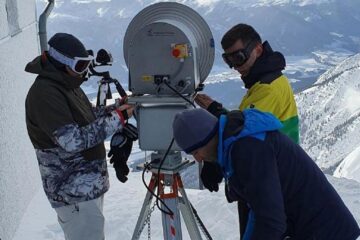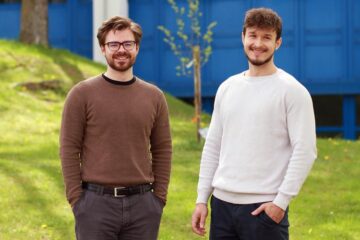Shaping Sustainable Food Futures – European Experts call for new Research Policy

European consumption experts today called for a new research policy on sustainable food consumption. Facing recent food crises around the globe, European food research should set new priorities, advocated researchers and policy makers from all over Europe.
More than 100 experts have jointly developed a “Research Agenda for Sustainable Food Consumption in Europe”, which sets the stage for pressing challenges to be addressed in coming years. Hot topics on the agenda include sustainable diets such as the reduction of meat consumption and animal-based products as well as sustainable food supply chains, e.g., strengthening local food systems. In light of the current hunger crisis in East Africa, reducing global food inequality gains a new and special significance.
“Going forward towards more sustainable food consumption requires a sound prioritisation of the relevant topics involved”, states Gerd Scholl, scientist at the Berlin-based Institute for Ecological Economy Research (IÖW). “The new research agenda is the result of collaboration between food and consumption specialists from all over Europe. It offers a strategic and comprehensive approach for designing an innovative research policy in this domain.”
The research agenda has been developed by the European consortium CORPUS, which connects researchers and policy makers from all over Europe, in order to work jointly on sustainable consumption policies. The agenda results from a series of three workshops addressing, amongst other topics, current food trends, policy instruments and future visions for sustainable food. “Such a close cooperation on this topic is unique”, says Gerd Scholl. “The expertise of the different professionals involved gives weight to the topics listed in the common research agenda. We call on European research policy to further endorse strategic research on sustainable food consumption.”
The consortium “CORPUS – Enhancing the connectivity between research and policy-making in sustainable consumption” is funded within the EU Seventh Framework programme. It aims to experiment with, and develop, new integrative modalities of knowledge brokerage on sustainable consumption policies. In addition to sustainable food, the consortium addresses the domains of sustainable mobility and sustainable housing. The website www.scp-knowledge.eu has been established as a platform for knowledge exchange and professional networking. The documentation of the food workshop series is available at: http://www.scp-knowledge.eu/og/food-group.
Contact
Dr. Gerd Scholl
Institute for Ecological Economy Research (IÖW)
Potsdamer Str. 105, 10785 Berlin, Germany
Phone +49 (30) 884594-20
gerd.scholl@ioew.de
Further information on the CORPUS Food Group and Download of the “Research Agenda for Sustainable Food Consumption in Europe”: http://www.scp-knowledge.eu/og/food-group.
The consortium comprises eleven partners from eight European countries. The participants of CORPUS are:
– Institute for Ecological Economy Research (IÖW), DE
– Federal Ministry of Agriculture, Forestry, Environment and Water Management, AT
– Copenhagen Business School (CBS), DK
– Copenhagen Resource Institute (CRI), DK
– Vrije Universiteit Brussel, Institute for European Studies (IES), BE
– Planète Publique, FR
– Regional Environmental Centre for Central and Eastern Europe (REC), HU
– Strategic Design Scenarios (SDS), BE
– National Institute for Consumer Research (SIFO), NO
– Vienna University of Economics and Business, Research Institute for Managing Sustainability (RIMAS), AT
– Finnish Ministry of the Environment, FI
Media Contact
More Information:
http://www.scp-knowledge.eu/og/food-groupAll latest news from the category: Health and Medicine
This subject area encompasses research and studies in the field of human medicine.
Among the wide-ranging list of topics covered here are anesthesiology, anatomy, surgery, human genetics, hygiene and environmental medicine, internal medicine, neurology, pharmacology, physiology, urology and dental medicine.
Newest articles

Uranium-immobilizing bacteria in clay rock
Microbial reduction reduces mobility of uranium compounds. When designing repositories for high-level radioactive waste in deep geological layers, various factors must be carefully considered to ensure their long-term safety. Among…

6G mobile communications tested in the Alps
Researchers at the University of Stuttgart achieve strongest connection. Making emergency calls even in remote areas and transmitting large amounts of data in real time? This is possible with the…

Optimising inventory management
Crateflow enables accurate AI-based demand forecasts. A key challenge for companies is to control overstock and understock while developing a supply chain that is resilient to disruptions. To address this,…





















